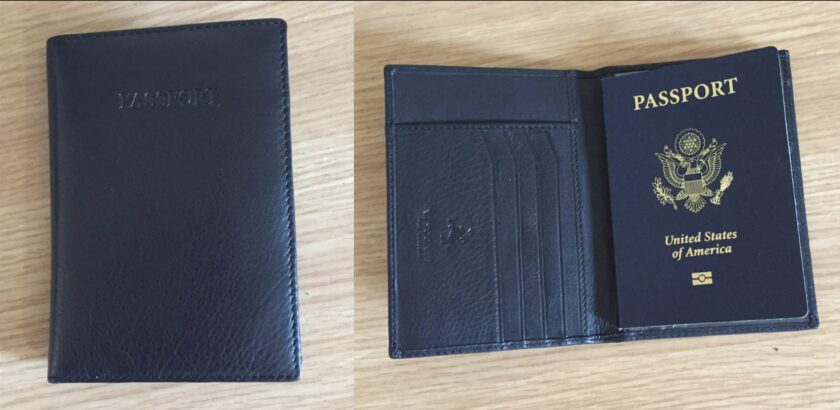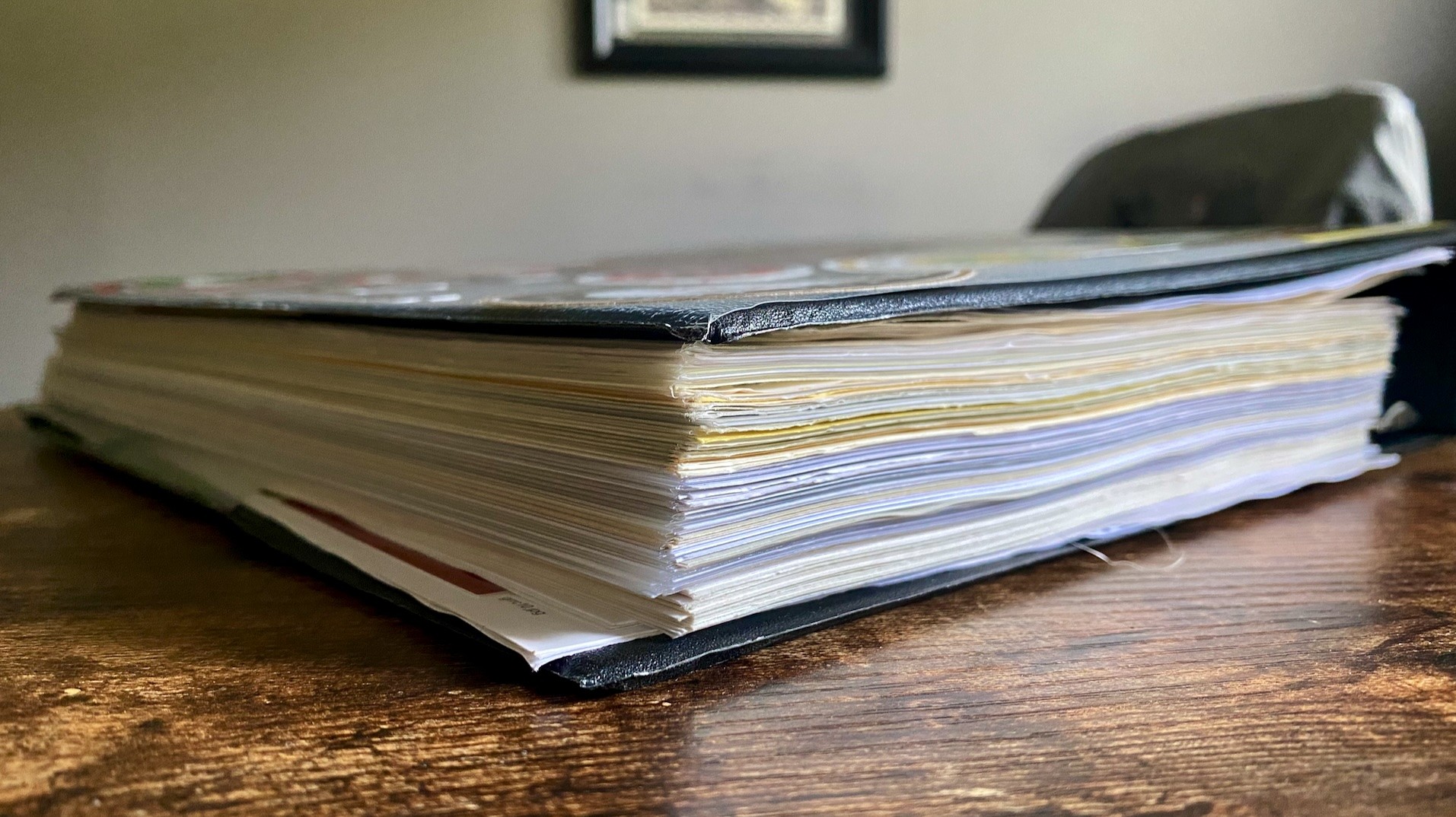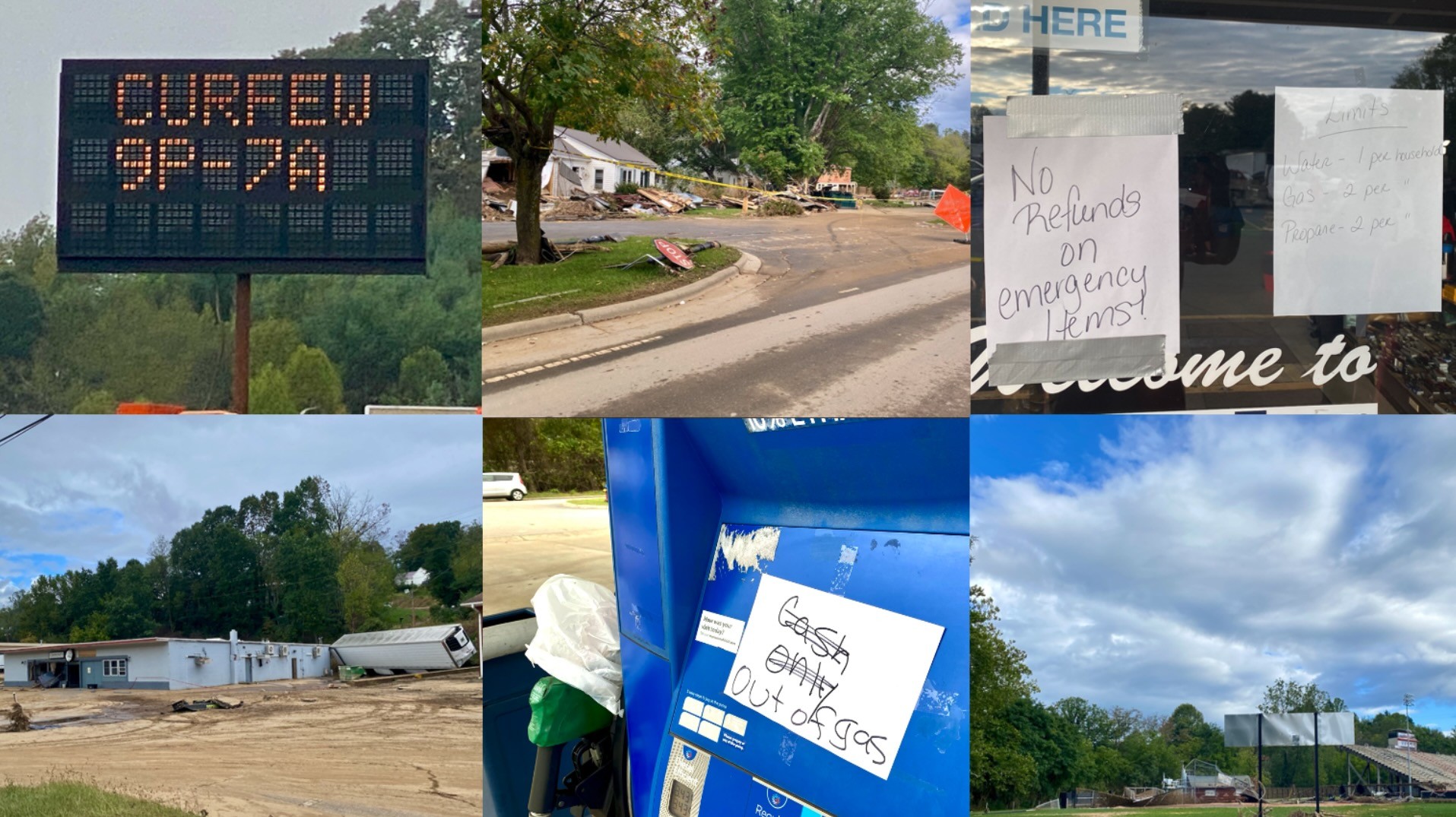Over the past few years I’ve been fortunate enough to do a bit of international travel. I’m also fascinated with personal security. The following are some minor “best practices” for international travel security. If you have any suggestions, post them so we can all benefit. Additionally, If I’m being foolish, please call me out.
International Travel Security
I fly with a US passport, often through countries where I prefer not to advertise my citizenship. I worry about my general privacy being violated by large scale data-aggregation companies, identity fraud, and international terrorism. Also, I worry about my US Passport elevating my profile.
Luggage
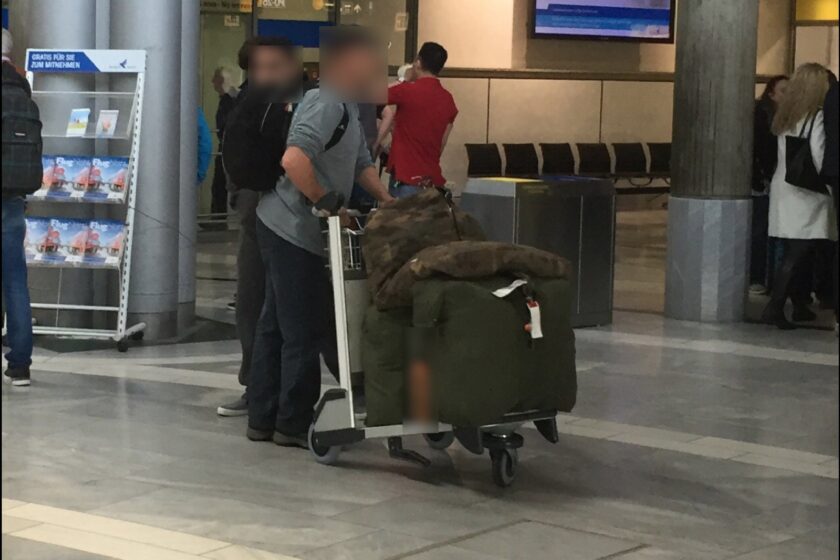
I took the above photo in a European airport. Can you identify the US Service-member? As a professional, it’s a worthwhile investment to buy normal/bland luggage. I know plenty of servicemembers who view this as an unprofessional and ridiculous violation of operational security (OPSEC). Obviously some do not. Use normal luggage. Blend in. Don’t be interesting.
Passport Cover: Inexpensive, professional and aesthetically pleasing, passport cases are a worthy investment. Many are made with Radio Frequency Identification (RFID) blocking material. The RFID blocking is a plus, but I think the biggest advantage is simply that it conceals my US passport. I’m in an airport with thousands of strangers, in debatably hostile countries. I have no idea who could catch a glance at my passport and immediately seethe with animosity. To be honest, I don’t blame some of them but I’m damn sure not going to give them a reason to remember me.
Digital Protection
RFID Blocking: Like the passport cover, I’m a fan of protecting my other digital assets from RFID compromise. I’m interested in protecting all my electronic/RFID-capable devices from identity theft as well as airport security (who really wants to go to additional security screening?). It is probably not a bad idea to have an RFID-blocking messenger bag or pouches for laptops, tablets, and cell phones†. Like the passport cover, I would focus on getting something non-alerting. Stay away from “tactical” nylon!
Block Data While Charging: USB connections typically allow power AND data to transfer between devices. Theoretically, malicious software (malware) can easily infect your devices via the numerous airport, airplane, hotel USB charging stations (as well as the USB ports now found in many rental cars). Inexpensive data blockers like the PortaPow I use allow you to block the data transfer while still allowing charging.
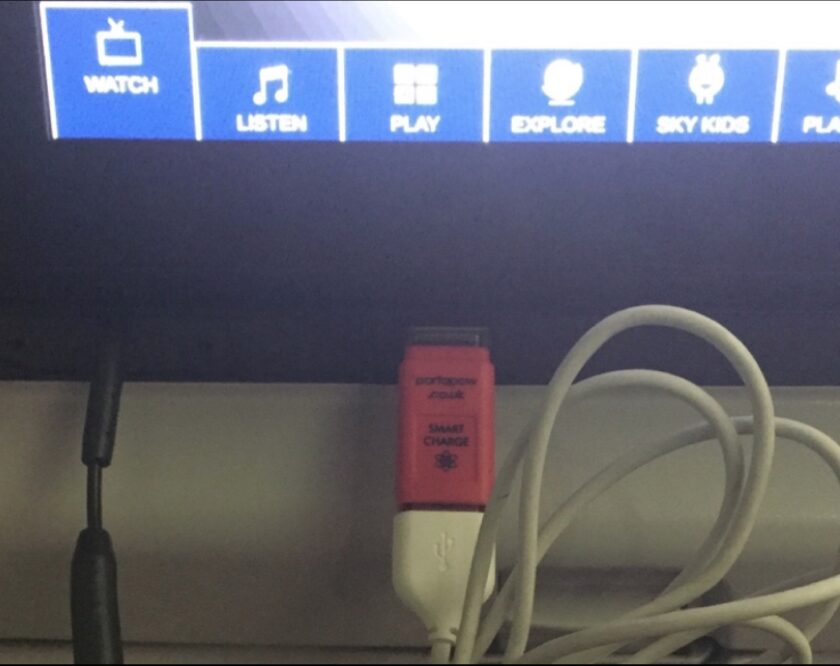
Cell Phone Privacy Screen: Reminiscent of computer privacy screens seen at many medical facilities, these screen covers drastically reduce visibility to anyone trying to view your screen from any oblique angle. Additionally, they protect your screen from scratches. On my most recent flight, a well-meaning older lady sitting next to me was baffled at my screen while trying to shoulder surf me. She asked, “What’s on your screen? I can’t even see your screen!”. Instant validation.
Miscellaneous/Well Known Points
Many of these have been beaten to death in privacy circles, yet I would be remiss not to mention them. Be wary of emerging and unknown Wi-Fi access points. I took the following pics at a Starbucks inside the Istanbul Airport a few months ago.
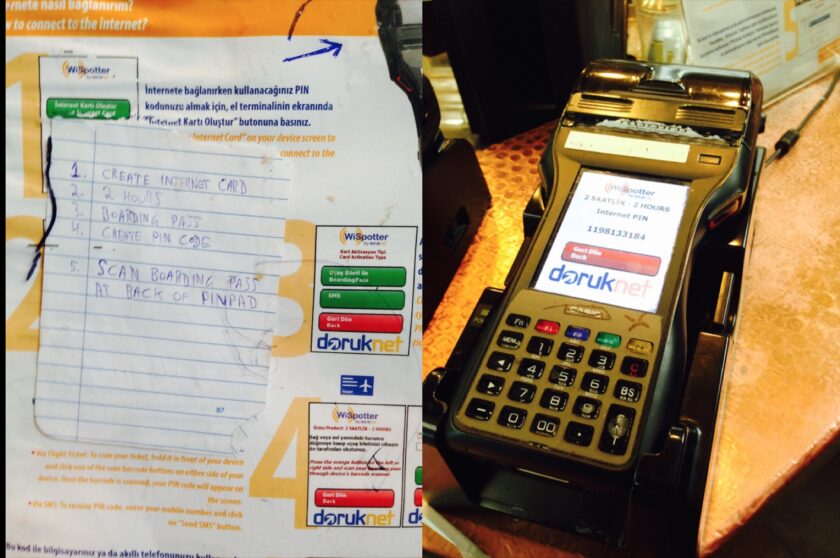
In order to get Wi-Fi access, you had to pair your credit card up with your boarding pass, then input the provided pin to get online. That’s some exceptional data linkage. **FYI, If you wait for someone to put their info it and take a photo of the PIN…that PIN will also work for you.
If you’re using public WiFi, use a Virtual Private Network (VPN). Don’t leave your computer or phone in your hotel room if you can help it. Cover the camera on your laptop with tape or one of these. Again, this is not new knowledge. However, make sure the tape covers the camera but not the indicator light that the camera is active. The difference is, this gives you an early warning when big-data (or PLA) is watching you.
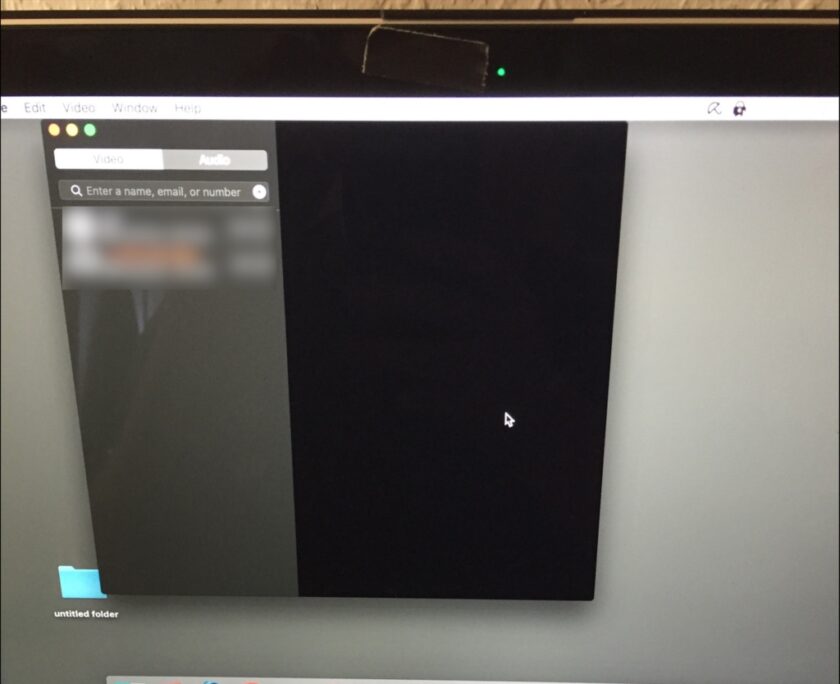
International Travel Security Closing Thoughts
My biggest international travel security advice to anybody is, please watch what you talk about. I hear way too many sensitive discussions in airports – from business people, military contractors, and service members. Don’t talk about your business’s proprietary information or classified information. Also, just be polite. Terrible people in the airport are the worst.
This post is by Gabe (a pseudonym), a close friend and colleague who has a vast body of experience in international travel and working against an actual opposing force. Gabe has a few future posts planned. Enjoy!


